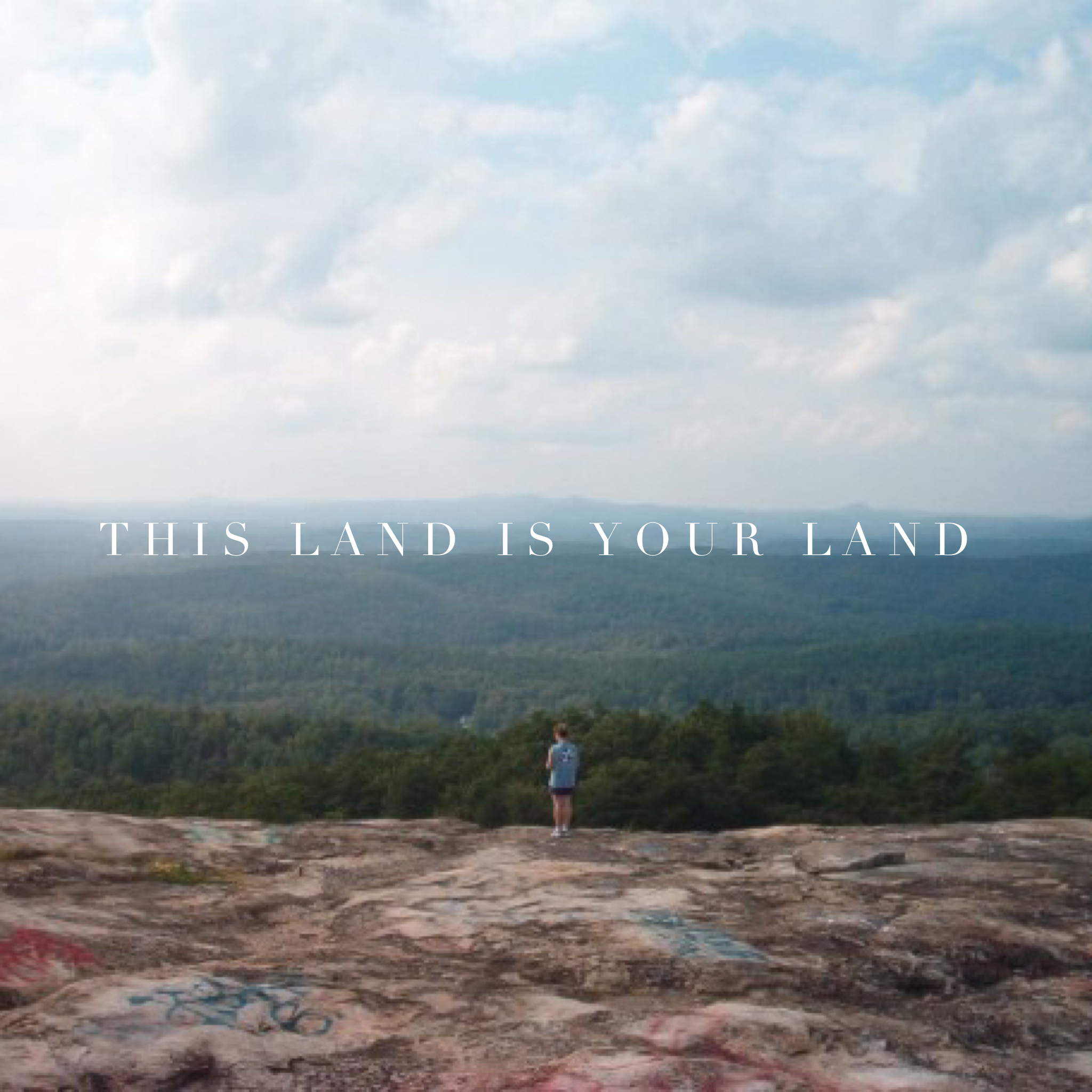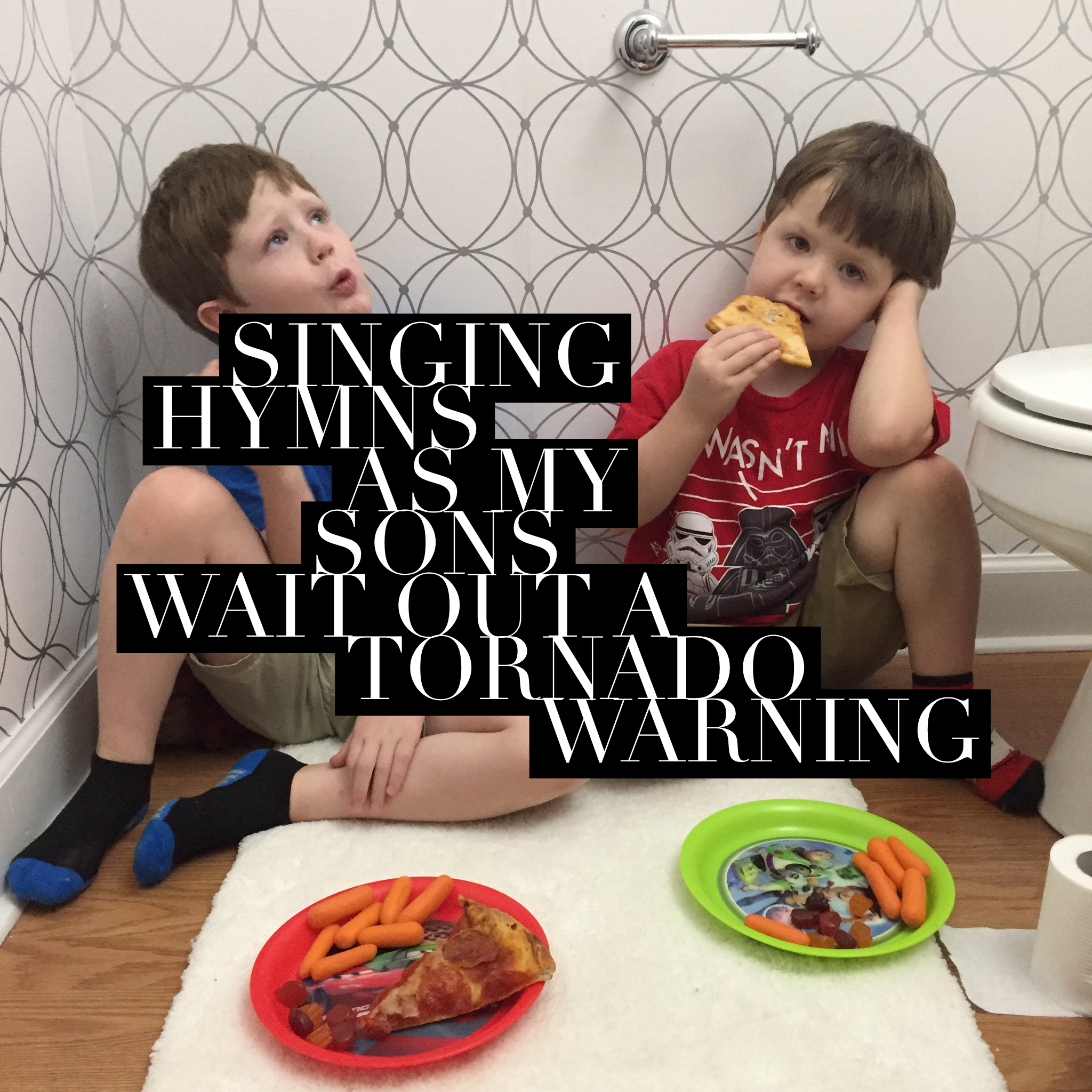This Land is Your Land
When I think about what it means to call oneself a Christian, I often return to the historic creeds of the early church. That's an odd statement from someone who was raised in a decidedly non-creedal denomination. I simply think that it's a good place to start the conversation. When we're talking about people who follow Jesus, that seems like a good place to define the parameters.
And when I look at the Apostle's Creed or the Nicene Creed, I see a lot of land. There is room to roam if you have different interpretations and takes on faith, scripture, and whatever else. It's not anything goes territory, but it has been home to lots of different viewpoints over a couple of millennia. That vast country is part of what makes the Church so complicated. Yet it is also what makes the Church so beautiful. There is space out here for Catholics and Baptists, Disciples and Eastern Orthodox, Methodists and Anglicans, Pentecostals and Presbyterians and more.
It gets messy. It makes the unity that Jesus prayed for in John 17 massively and ridiculously challenging. Yet when it works...my God, when it works, it is something amazing to behold. The real challenges occur when something like the Nashville Statement happens. Article 10 of the document states: "We affirm that it is sinful to approve of homosexual immorality or transgenderism and that such approval constitutes an essential departure from Christian faithfulness and witness." One of the top signers clarified in a blog post that what they are saying is if you reject their interpretation of this issue then you are "rejecting Christianity altogether."
The Nashville Statement marches into the massive country that is the Church, throws up a fence, and declares that their town is the True Church. The rest of that beautiful country? The rolling hills and expansive plains occupied by people who are trying to follow Jesus yet disagree with the Nashville Statement? It's wasteland. The town is God's country and everything else is for the fire.
Then strangers journey into this land and stumble across this town. "What is this?" the strangers ask. "This is Christianity," the townsfolk confidently declare. And the stranger leaves thinking that how those townspeople think and act and vote and treat their neighbor speaks for all Christianity when there is a whole country waiting to be discovered.
The citizens of that country living outside the town find themselves being belittled and marginalized. Some people can pass for townsfolk as long as they don't push against the status quo. Others will walk inside the gates and be told, "Your kind isn't welcome around here." Or "You come back when you become like us." And lots of different things happen to those Jesus-following people who are told they're not really Christians. Some hopefully find community outside of those gates. Others will bury their true selves under some facade so that they can belong. Others will leave the country altogether and never come back.
Article Ten doesn't surprise me. Several of the prominent signers of the document have a well established history of issuing farewells to those who don't live by their interpretations and standards. Article Ten is not surprising, but it doesn't make it hurt any less. People who love Jesus, people made in the image of God are standing outside the gates and being told that they don't belong: LGBTQ individuals, their allies and loved ones, people who don't meet the Nashville Statement's standard for sexual purity. Even couples who struggle with fertility issues find language in this document that insinuates that they are something less.
Article Ten is not surprising, but it doesn't make any less infuriating that after 500 plus years of the Church splintering in all directions that another group would drive another wedge. That they would throw up a town in which they declare themselves the one, true church. Article Ten is not surprising, but it's disappointing that Baptists (the denomination in which I have spent the vast majority of my life) would sign this document demanding conformity to an interpretation and thus neglect their founding principles of local autonomy, soul freedom, and the priesthood of the believer.
This town that they have built is not the one, true church any more than the previous towns that declared the exact same thing. God's grace covers a great wide country that those fences could never possibly contain. I hope people understand that God's country is bigger than this little town erected by the Nashville Statement. For LGBTQ individuals and their allies, there are homes for you out here. There are communities who love you. For strangers that wander in, I hope they realize that this statement doesn't embody the entirety of those who follow Jesus. Despite what the Statement says, this is not the final word. I hope people will look past the gates and still see followers of Jesus.
For the people in that town, many of them well-intentioned, I hope you know how statements like this can wound those you claim to love. I hope you understand the stories of depression, self-loathing, and suicide that are part of this narrative. I know where you're coming from, but I hope you'll stop and reconsider these types of actions. The dramatic lines in the sand and the shutting of doors are doing nothing to advance the love of Jesus. At least understand that is what I believe as fervently as what these townsfolk believe.
The temptation is to respond with an eye for an eye. Yet I cannot build another wall outside this town and claim that they are the ones outside of God's country. That would be massively hypocritical and out of step with how I understand the gospel. Even if you say farewell to me, I cannot say farewell to you. This is not to say that my fellow LGBTQ Christians should have to venture inside this town and make peace. You have been hurt enough.
But I'm going to do my best to not kick others out. I will stand up if they hurt someone and I won't let hatred be a part of the church. But I have to hope that people in this town might hear some stories from outside the gates and I have to have the humility to understand that I might need to learn something from them. I don't know it all. It gets messy this whole idea of sharing land with people with which you don't always see eye to eye but are still called to love.
And I have to make peace with the fact that if you kick me out then you kick me out. At least there is a lot of land out here.






